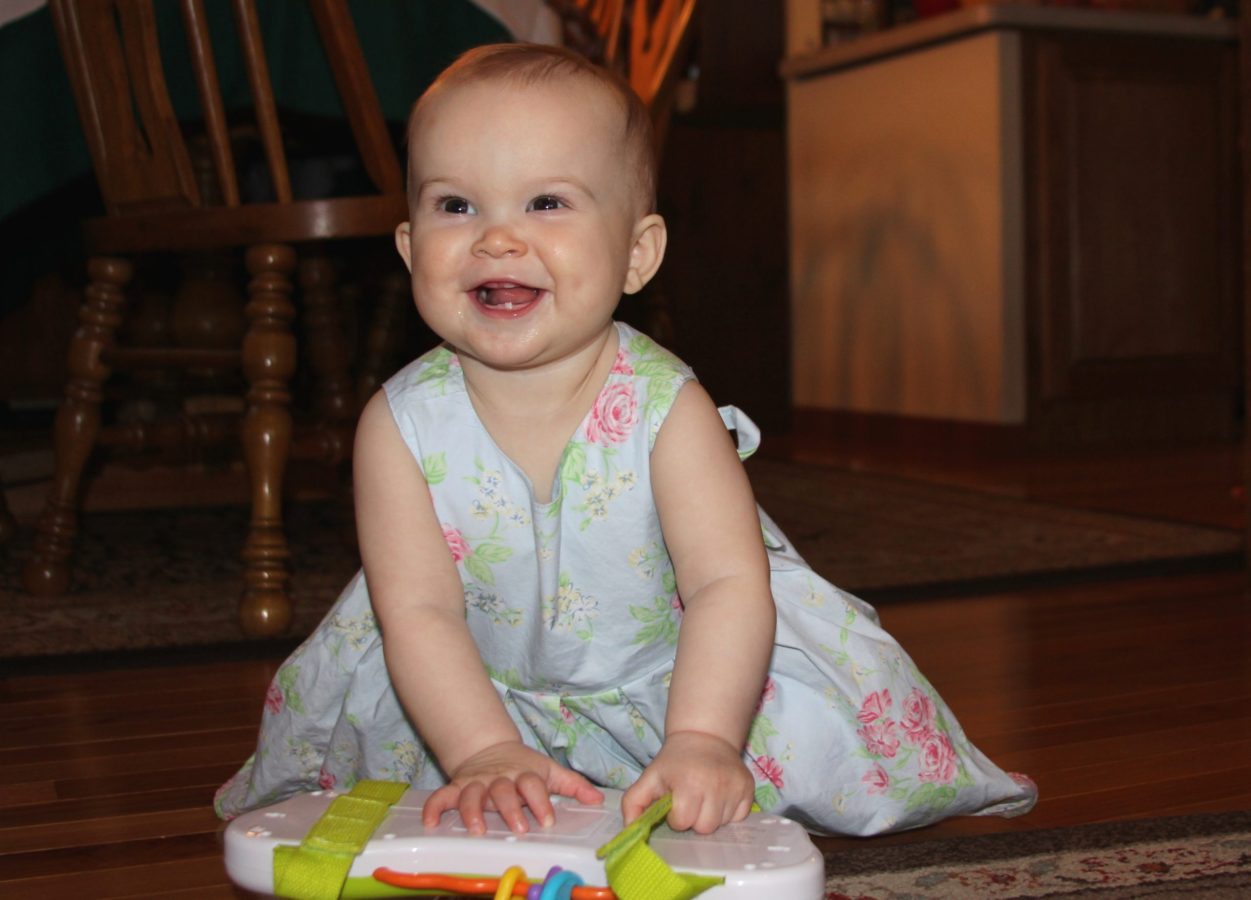Images of new mothers with their babies are typically idyllic and calm—for example, a radiant young woman with a blowout and a serene smile cradling a sleeping infant in her arms like a mini baguette. Of course, the reality of a life with a newborn is usually quite different, especially if your little one is exhibiting signs of colic.
Such was the case with my newborn. Unlike the calm babies depicted in the parenting manuals, Lydia did not sleep all the time or coo contentedly as I held her in my arms. On the contrary, she thrashed and howled from day one. I held her to my chest and willed us to bond. She responded by scrunching up her face, turning red and unleashing a torrent of bone-chilling screams.
“Could this be colic?” we asked the nurses and doctors at the hospital, but
“colic”—characterized by crying more than three hours a day for more than three days a week for over three weeks—apparently doesn’t start until a baby is at least two weeks old. Our daughter was given a clean bill of health, so there was no obvious medical problem. “Babies cry,” they would say, as they rushed from the room.
“Colic is one of the most difficult things to deal with as a parent and as a healthcare provider,” says Dr. Kathryn Harrington of Pediatric Services in St. Louis Park. “This is due, in part, to a lack of knowledge about the cause of colic. Likely the cause is related to several factors involving immature nervous and gastrointestinal systems. Colic is in no way secondary to something a parent is doing wrong.”
Interventions
Everyone always says that a baby will “change your life” and looks at you with wide eyes, but no one tells you that your baby may scream virtually non-stop for months, red-faced and flailing, as if you are continuously sliding burning-hot needles under tiny little fingernails.
“Is this normal?” my husband Nick asked me, as the frantic howls continued despite our constant attempts to soothe her.
“Many interventions have been suggested for colic, but few are supported by medical research,” says Dr. Harrington. “What I most recommend is a trial of probiotics, swaddling, mild pressure on the stomach, movement (swinging, swaying, or bouncing), a pacifier, and white noise.”
Nick and I tried many of these interventions, and sometimes they worked. The main problem was that they required a great deal of effort and stamina in the face of severe sleep deprivation and stress. Occasionally, around 3:00 a.m., Lydia might calm down for a few minutes after Nick spent two hours bouncing her around the kitchen to a Stereolab record. Meanwhile I could usually be found upstairs, weeping and fighting off panic attacks. I guess what I’m saying is, the colic experience can take its toll on your relationships and your mental health. You need a survival plan.
“First and foremost, I suggest families find support networks to help deal with the stress colic places on the whole family,” says Dr. Harrington. “This may be a family member, friend, babysitter, or doula to provide a parent with a break, or a parenting group or class. Your pediatrician should also be a part of this support network.”
Sara Pearce, founder of Amma Parenting Center, agrees. “Our biggest strategy at Amma, since we’re not in a clinical setting and may not have all the medical information, is to help a new family ensure they have the necessary support structures around them while they navigate these difficult waters. Our goal is to foster a sense of resiliency in a new mother.”
This is all good advice, but it can be difficult to follow when you’re hallucinating from lack of sleep and drowning in shame from what you assume must be your shoddy parenting skills. However, it is essential that you find support. If a friend offers to hold your little screamer so you can run errand or take a nap, let them! And if they don’t offer, ask for help or hire a professional to give you a break.
More than anything, realize that this too will pass. Most colic resolves by three or four months, which was the case with our daughter. In the months that followed, she became an increasingly happy, sweet, and funny little girl. So take heart—there’s an end in sight, and it gets way better.
Shannon Keough lives in Minneapolis with her husband,
Nick, and daughter, Lydia. Send questions or comments to
[email protected].

















